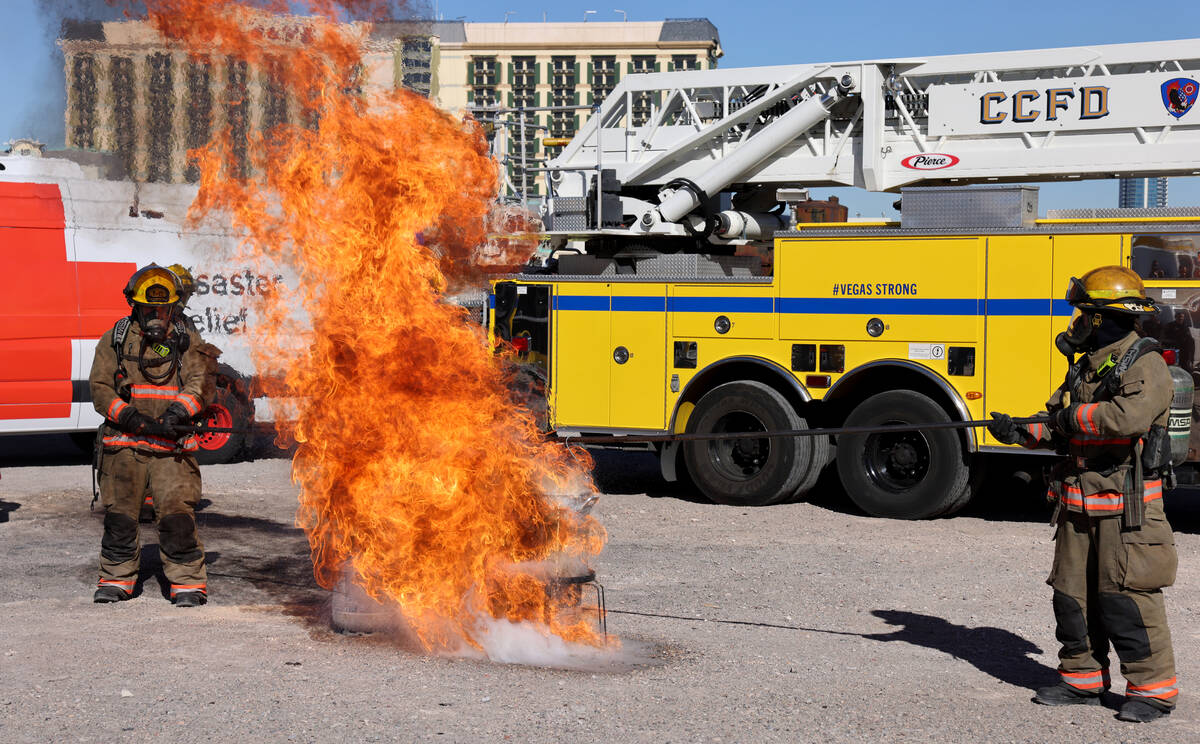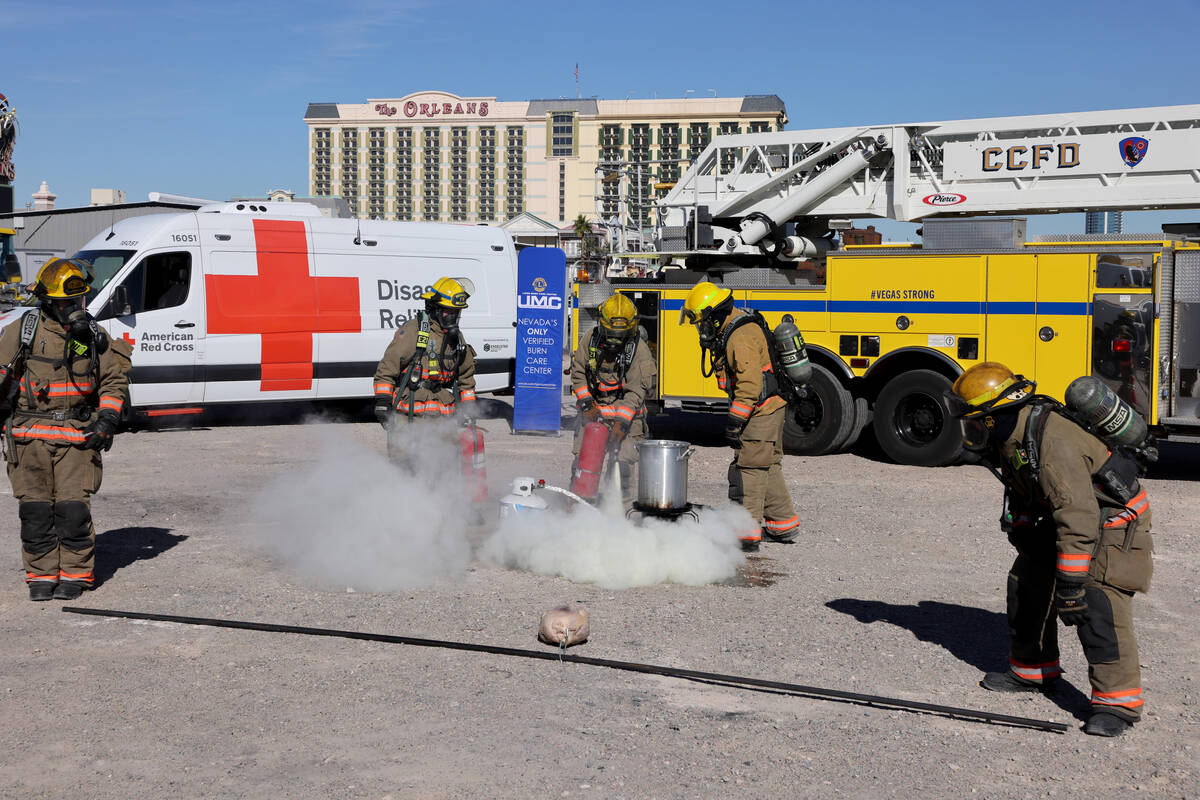Deep-fried turkeys can spark blazes, Clark County officials warn
Deep frying the turkey this Thanksgiving? Read this beforehand to avoid starting a fire.
According to a reminder issued Monday by the Clark County Fire Department, household attempts at deep frying turkeys are the biggest risk on a holiday that is known as the biggest day of the year for cooking-related fires.
“The large amount of oil and high cooking temperatures can turn cooking into a frightening and devastating experience,” said the department in its reminder.
The department also issued a list of dos and don’ts when it comes to Thanksgiving cooking.
“Never use a turkey fryer indoors, in a garage, or under an awning,” the agency wants to make clear. “Make sure it is on a flat level surface and away from structures, tree branches or bushes.”
But deep frying a turkey is particularly fraught with risk. At a demonstration on Monday, fire officials recommended using a fully thawed turkey and oil below 350 degrees.
“The holidays are a fun and active time for families, especially in their kitchens where it may be easy to get distracted,” said Clark County Fire Department Chief John Steinbeck in a statement. “It’s important to never leave food cooking on a stove top unattended and to keep a safe distance from burners and hot foods or liquids. This is also a good time of year to make sure your household smoke detectors are in good working order in case of fire.”
Size matters
“Smaller birds work best for frying,” according to the U.S. Department of Agriculture. “The turkey should be no larger than 12 pounds — or you can fry parts instead, such as breasts, wings, or legs. It should be fresh, completely thawed, and not stuffed.”
If the bird is bought frozen, remember that “it takes 4-5 pounds per day to thaw that safely in the refrigerator; for a 12-pounder it will take 2.5 to 3 days in the refrigerator to thaw, then cook within 1-2 days.”
According to FEMA, those deep frying turkeys need to make sure the fryer is at least 10 feet from your home. Also, a “partially frozen turkey will cause cooking oil to splatter when you put it in the cooking pot.
“Make sure your turkey is fully thawed without frost on it before you fry it,” FEMA said in a “Turkey Fryer Fire Safety” brochure online.
Other things to keep in mind include being careful with how much cooking oil is poured into the fryer. If it’s overfilled, the cooking oil will spill when the turkey is put in. Before using oil, add water to the fryer, then the turkey, making sure the water doesn’t get too close to the top or overflow. Use the water as a guide to figure out how much oil can be added to the fryer without making it overflow.
State Farm also urges people to wear goggles to protect the eyes and oven mitts to protect the hands.
“Keep the children and pets away from the fryer at all times,” State Farm says in an online “Tips on how to deep fry a turkey safely” guide.
And of course, use Google and YouTube and any other credible online source if you need more information on how to safely deep fry a turkey from beginning to end.
Other tips
The Clark County Fire Department also said:
— Don’t cook if you’re tired, taking medication that makes you drowsy, or have been consuming alcohol.
— Frying, grilling, boiling, or broiling? Stay in the kitchen.
— Don’t leave the cooking unattended.
— Anything that can go up in flames, whether loose clothing, oven mitts, food packaging or curtains, keep them away from the stove.
If you find yourself dealing with a fire, remember:
— Never use a fire extinguisher on a grease fire because it could spread the fire by spraying the grease around.
— Oven fire? Close the oven door and turn the heat off.
— Keep the lid beside your pan. If you find yourself dealing with a pan fire, put the lid on and turn off the burner. Don’t remove the lid and let the pan cool for a while. Don’t throw any water on the pan.
Finally, after cooking, let the cooking oil cool and don’t pour it down the drain. Put it in a jar or can and throw it out with the trash.
Contact Brett Clarkson at bclarkson@reviewjournal.com or 561-324-6421. Follow @BrettClarkson_ on Twitter.























